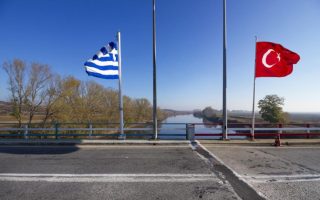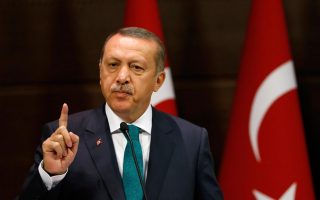Reasonable concern

It’s a known fact by now that Turkey is displaying an aggressive stance in many different directions, it wants to be seen as a regional power in the Middle East and Southeast Mediterranean, it is standing up against big powers (like the United States), it is drifting away from the West and moving closer to Russia; it deems that it holds the key to Europe’s refugee issue, it claims a hegemonic role among the countries of the Islamic world (particularly Sunni Muslims), it is determined to undo the Lausanne Treaty, and it does not hesitate to take opportunistic actions in order to show that it has a “long arm” and to intimidate other states (as in the case of Kosovo and Greece).
Greece, like Cyprus, has the geographical misfortune of sharing a border with Turkey. A big part of its modern (as well as post-Byzantine) history derives from bilateral relations with its Aegean neighbor. This misfortune is even more burdensome in the current conjecture, as the equilibrium is changing and the region is dominated by volatility, while at the same time the world’s hegemonic powers seem reluctant to mediate and restore international order.
Turkish President Recep Tayyip Erdogan, as well as the rest of Turkey’s political class, has exploited this fact as he aspires to terminate international treaties, disregarding international law and declaring his determination to take or sacrifice lives. After all, Erdogan believes that Western countries can no longer stomach the losses that come from wars waged for reasons of principle. If all that is the case, he should no longer be counted as an unpredictable leader; but as a very dangerous and, in fact, predictable one.
Greece’s misfortune is even greater considering the fact that it is ruled by a government that is clueless with regard to domestic issues. The only thing the leftist-led administration cares about is its own political survival. It interprets Erdogan’s statements and actions as being exclusively aimed at a domestic audience in the runup to Turkey’s presidential elections. In other words, it interprets Erdogan’s moves through its own narrow filter.
As a result, Defense Minister Panos Kammenos has added fuel to the flames with his incomprehensible remarks. Of late, Prime Minister Alexis Tsipras is following suit – either because he fears that he will seen as submissive compared to his outspoken defense minister or because he thinks the tension (or even a crisis) could galvanize electoral support. Every reasonable citizen has good reason to be concerned.





